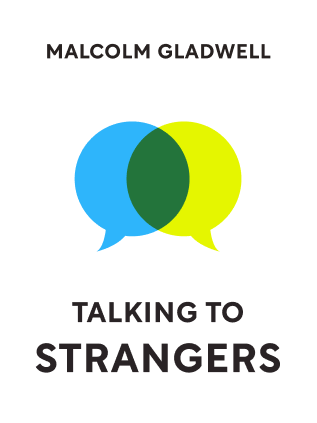

This article is an excerpt from the Shortform book guide to "Talking to Strangers" by Malcolm Gladwell. Shortform has the world's best summaries and analyses of books you should be reading.
Like this article? Sign up for a free trial here .
What is Truth-Default Theory? Why do we tend to assume the best in people, and is this evolutionarily beneficial?
Truth-Default Theory is the theory that when a stranger is lying, human beings default to assuming truth in others. We want to believe that what others tell us is true, and we’ll default to truth unless, or until, our doubts can’t be explained or rationalized.
We’ll cover the primary reason that most people cannot immediately identify a lie, and how the Truth-Default Theory may actually be an evolutionary advantage.
Truth-Default Theory and How It Works
In an effort to understand and analyze the Truth-Default Theory, psychologist Tim Levine used hundreds of versions of the same basic experiment (referred to here as the Trivia Experiment). Here is how the Trivia Experiment works:
- Levine invites participants to a laboratory. They are told that if they can answer a trivia test correctly, they will win a cash prize.
- Each participant is given a partner. The participants don’t know that the partner works for Levine.
- The test is administered by an instructor named Rachel. The participants don’t know that Rachel also works for Levine.
- Halfway through the test, Rachel leaves the room. The partner points to an envelope lying on the table and asks the participant if they should cheat on the test. The participant is given the opportunity to choose whether or not to cheat.
- After the trivia test is over, Levine interviews the participant. He asks the participant if they cheated during the test.
- After the completion of the interviews, Levine goes back to watch the tapes and categorizes them into two categories: Liars and truth-tellers.
- Other people then watch the interview tapes and try to decipher which participants are lying about cheating and which participants are telling the truth.
Levine’s Conclusion on the Truth-Default Theory:
When watching the tapes, most people will guess that each person interviewed is telling the truth, unless they see a behavior that distinctly makes them think the person is lying. In other words, the viewers default to assuming truth—they naturally operate under the assumption that the majority of participants are honest. This is the Truth-Default Theory (TDT). Because of this default, viewers are more accurate at identifying truth-tellers than liars.
Truth-Default Theory Triggers
The Trivia Experiment itself is an example of how Truth-Default Theory plays a role in human behavior. Each participant that goes through the trivia test knows she is part of an experiment. Suddenly Rachel leaves the room and just so happens to leave the answers on the desk. The participant’s partner, who she’s never met before, suggests cheating. Wouldn’t you expect at least some of these college-educated participants to be suspicious at that point?
Every once in a while, a participant might catch on that one or more aspects of the trivia test is a setup, part of the experiment. However, they almost never assume that their partner is involved. Why not?
Levine concluded that a participant can have a suspicion, or even a series of doubts, but they will continue to believe the truth of the situation. The only way a person will snap out of the truth-default is if they gather enough doubts—if their suspicions rise to a level that they cannot explain away or rationalize. He called this a “trigger.”
So when a person (let’s call him Fred) comes across a stranger, Fred will generally believe what the stranger says. Even if he doubts the stranger several times, Fred will continue to default to the assumption that the stranger is telling the truth. Truth-Default Theory says that truth-default will hold until Fred gathers enough doubts to push him past the trigger point. If there are not enough red flags to trigger Fred to notice a stranger’s lie, it is only human that he would fail to identify the stranger’s deception.
Is Truth-Default Beneficial?
Being able to detect lies seems like an unequivocal good. The Russian archetype of the Holy Fool demonstrates the benefits of being able to see the truth of a situation. The Holy Fool is typically an eccentric character, sometimes even a crazy one, who has access to truths that other characters don’t have access to.
For example, in “The Emperor’s New Clothes” by Hans Christian Anderson, the king believes that he has a magic outfit that can only be seen by intelligent people. When he walks down the street, no one is willing to admit that the king is naked, for fear that they’ll be called stupid. Only a small child yells out over the crowd, “The king isn’t wearing anything!” The child is a Holy Fool.
In real life, the Holy Fool is a whistleblower. What sets whistleblowers apart from the rest of society is that they have a better sense of deception and are less likely to default to truth and to believe that liars are rare. Instead, the Holy Fool sees con men around every corner.
So why don’t more people think like the Holy Fool? Isn’t it beneficial to be able to spot a lie?
The Benefit of Truth-Default
If you think about it, Truth-Default Theory is the reason that criminals so often go undetected. So wouldn’t it be beneficial for humans to have evolved with better lie detection skills? Why is it still a natural human behavior to default to truth? Defaulting to truth aids in our survival.
After the Trivia Experiment, Levine was concerned with the following questions:
- How is it that, over the course of human evolution, humans haven’t gotten better at detecting a lie?
- Wouldn’t it be useful for human survival to be able to identify when you’re being deceived?
Ultimately, Levine concluded that human beings do not need to identify lies (from a survival standpoint) as much as we need to be able to have efficient communication and trusting social encounters.
He argues that truth-default is highly advantageous to survival because it allows for effective communication and social coordination. From an evolutionary standpoint, being vulnerable to deception does not threaten human survival, but not being able to communicate does threaten human survival. To better understand this point, we have to look at what happens when we don’t default to truth. This is the point of Truth-Default Theory.

———End of Preview———
Like what you just read? Read the rest of the world's best book summary and analysis of Malcolm Gladwell's "Talking to Strangers" at Shortform .
Here's what you'll find in our full Talking to Strangers summary :
- Why we don't understand strangers
- How to talk to strangers in a cautious way so you don't get fooled
- How Hitler deceived so many world leaders






